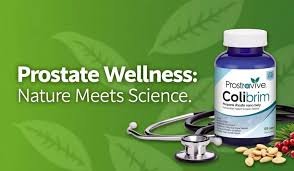
Many men come across Prostavive Colibrim while looking for ways to handle prostate troubles. It’s marketed as a natural supplement, something meant to bring comfort as the years add up. Now, the prostate itself is a small gland, but when it starts acting up, life can get frustrating fast. Late-night bathroom trips, a weak stream, or the sense that your bladder is never quite empty, those are complaints most men over forty know too well.
The makers of Prostavive Colibrim say their formula can ease these problems. But here’s where the conversation gets tricky: how much of that is marketing, and how much is fact? Even health groups like the NIH point out that while herbs have been used across cultures for centuries, not every remedy has strong scientific proof behind it.
Some men like the idea of trying something natural first. Others are more cautious, sticking to doctor-prescribed treatments. Prostavive Colibrim ends up sitting between those two views; it feels like a natural choice, but it also leaves plenty of open questions.
Background and Development
Why do supplements like Prostavive Colibrim even show up on the shelves? The short answer: guys are looking for easier, natural fixes. Most don’t want surgery or heavy meds unless they really have to. This isn’t just an American thing either. The World Health Organization says people all over the globe turn to herbs for everyday health.
Now, here’s where it gets tricky. In the U.S., the FDA keeps an eye on supplements, but companies don’t need to prove that their pills actually work before selling them. The FDA usually steps in only if there’s a safety issue or a company makes wild claims. That leaves the market full of all kinds of products, some helpful, some just hype.
Prostavive Colibrim falls into that mix. It’s marketed like other prostate formulas, often built around herbs such as saw palmetto or plant sterols, both studied for years. But without solid published research, no one can say for sure it delivers on the promises. And let’s not forget: “natural” doesn’t always equal “safe” or “effective.”
Key Ingredients or Components
Many prostate supplements use the same handful of natural ingredients, and Prostavive Colibrim is no different. Let’s break down a few you’ll often see:
- Saw palmetto – This is a small palm fruit. Some men say it helps them cut down on bathroom trips at night, though scientists aren’t all in agreement.
- Beta-sitosterol – A plant nutrient you get from veggies and nuts. It’s been linked to better urine flow, and a few studies back that up.
- Zinc – A simple mineral, but one your body really needs. It supports immunity and may also keep the prostate working normally.
- Pygeum – Comes from the bark of an African tree. People have used it for years, and some modern research suggests it eases urinary troubles.
The bottom line? These ingredients might help, but not everyone notices results. For some men, the change is clear. For others, it’s barely there. Supplements don’t work the same way for everyone, and that’s worth keeping in mind.
Claimed Benefits of Prostavive Colibrim
Many men notice changes in how they use the bathroom as they get older. The makers of Prostavive Colibrim say their product can help with a few common troubles: stronger urine flow, fewer nightly wake-ups, less pressure in the belly area, and overall support for the prostate. These problems are tied to a condition doctors call benign prostatic hyperplasia, or BPH. It’s not cancer, but it is very common. In fact, government health data shows that about half of men in their fifties have it, and the number climbs to almost nine out of ten by the time men reach their eighties.
Now, here’s the catch: no supplement works the same way for everyone. Some men report real relief, while others notice little to no difference. That’s why doctors remind patients to be cautious, know what has good evidence behind it, what still needs more study, and when it’s time to see a professional for advice.
Possible Side Effects and Safety Concerns
Just because a bottle says “all natural” doesn’t mean it’s risk-free. Supplements can still cause problems for some folks. For instance, a few men complain about an upset stomach or feeling a bit dizzy after taking them. Others get mild headaches, or the herbs clash with medicines they’re already on blood thinners are a big one. And let’s be honest, allergies can show up too, even from plants that sound harmless.
Take saw palmetto, for example it can upset your stomach. Beta-sitosterol sometimes makes people feel queasy. Pygeum? That one may bring on stomach cramps or even loose stools. None of these are life-threatening for most users, but they’re still annoying. That’s why doctors keep saying the same thing: if you’re already dealing with blood pressure pills, heart meds, or diabetes drugs, don’t just add a supplement on your own. Always ask first.
Consumer Reviews and Market Reception
When you read what men say about Prostavive Colibrim, it feels a bit split. A few talk about real relief things like getting through the night without jumping up three times to pee, or finally feeling a steady stream again. But then others shrug and say, “honestly, nothing changed for me.”
That back-and-forth is pretty normal with supplements. They don’t hit everyone the same way.
What happy users often point out:
- Flow feels smoother
- Less pressure in the bladder
- Fewer late-night bathroom runs
What the less impressed guys mention:
- No difference even after several weeks
- Feels expensive for what it does
- Unclear if it’s safe to stay on long term
So the takeaway? It can work for some, but it’s not a magic pill. Going in with steady, realistic expectations makes the whole process easier.
Regulatory Status and Certifications
Supplements aren’t checked the same way as medicines. The FDA doesn’t test every pill before it shows up in stores. They usually step in only if people get hurt or if a company is caught lying in ads.
Some brands try to do the right thing. They follow rules called “Good Manufacturing Practices” (GMP). That means the product was made in clean, safe places. A few also brag about being organic or having their stuff double-checked by outside labs.
Still, since there’s no big FDA stamp of approval, buyers have to be careful. A smart move is to stick with sellers you trust, look for GMP or third-party test labels, and if anything feels off, report it to the FDA’s MedWatch program.
Alternatives to Prostavive Colibrim
If Prostavive Colibrim doesn’t live up to the hype, men still have plenty of choices.
Doctors often start with the basics. Cutting back on coffee, soda, and alcohol can calm the bladder for some people. It’s simple, costs nothing, but let’s be real, it might not fix the problem on its own.
The next step is usually medicine. Alpha-blockers or 5-alpha-reductase inhibitors are common prescriptions. They work for many guys, though the downside is possible side effects like dizziness or lower sex drive.
Others prefer a natural route. Things like beta-sitosterol, pumpkin seed oil, or rye grass pollen have been tried for years. They’re easy to grab online or in stores, but results are mixed and not every study agrees they help.
And when symptoms get too tough to manage, surgery becomes the last resort. It can ease pressure and improve flow, but recovery takes time, and it’s definitely more invasive than pills or diet changes.
Buying Guide and Pricing
When shopping for supplements like Prostavive Colibrim, keep these steps in mind:
- Check the label. Look for full ingredient lists.
- Avoid wild claims. If it promises a “cure,” be careful.
- Look for certifications. GMP or third-party testing is a good sign.
- Compare prices. High cost does not always mean better quality.
- Buy from safe sellers. Trusted pharmacies or official websites are safer than random online ads.
Prices for supplements like Prostavive Colibrim can range widely. Some bottles cost $30. Others go above $70. Bulk offers are common but should be approached with care.
Conclusion
Many men look into supplements like Prostavive Colibrim when they start having prostate troubles. The bottle usually lists herbs such as saw palmetto or beta-sitosterol. Some small studies hint these plants might ease urinary issues, but the results aren’t the same for everyone. What works for one man may do nothing for another.
Health groups including the NIH, WHO, and even the FDA have all said the same thing: “natural” doesn’t always mean “proven.” A supplement can give support, but it shouldn’t replace proper medical advice.
If you’re curious about Prostavive Colibrim, the safest path is to stay balanced. Read the label, check what real research says, and most important, ask your doctor before adding it to your routine.





